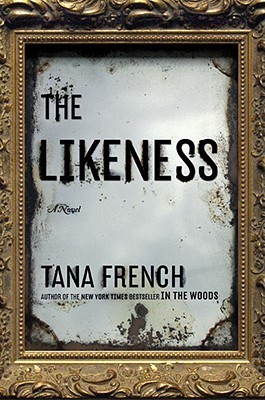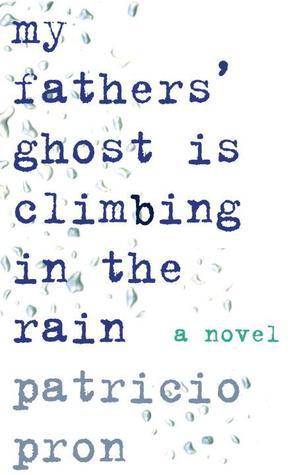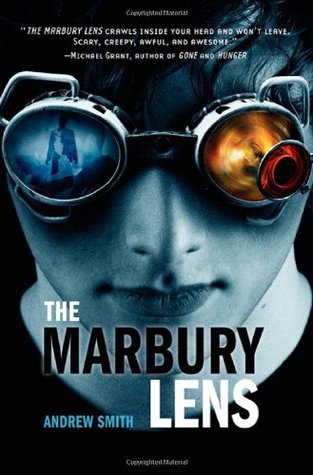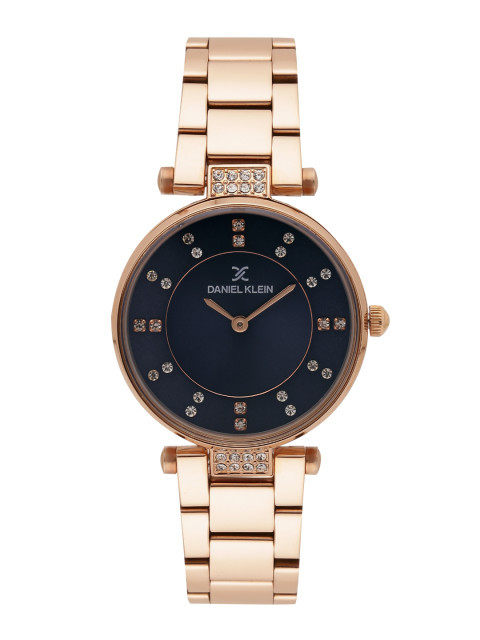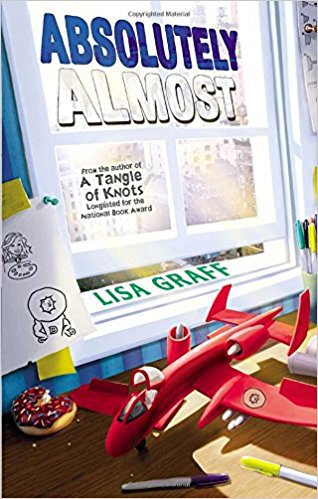 Discussion Starters for Absolutely Almost by Lisa Graff
Discussion Starters for Absolutely Almost by Lisa Graff
Remember, spoilers abound!
What does the title of the novel mean? What is Albie almost? Discuss Albie’s academic situation at school. In which areas does he struggle? In which areas does he excel? Consider: “I’m good at noticing things” (27). Do you consider Albie a normal student? Were you surprised when it was revealed that Albie is not dyslexic? How does the story change—or does it?—if you read Albie as someone with a diagnosable learning disability? Why do you think Albie and his mother were so disappointed when Albie did not test positive for dyslexia? Consider: “The only thing wrong with my brain was my brain” (123). Consider: “ ‘Almost, Albie,’ Dad said slowly… ‘isn’t nearly good enough” (151). Discuss the struggle of being almost… How does it present a different set of challenges than not ever coming close? Discuss Albie’s assessment of B’s: “But I didn’t get an A. I got a B. Getting a B didn’t feel like the best feeling in the world. It felt almost Almost happy. Almost proud. But not as good as an A” (274).
 Discuss Albie’s social situation at his new school, paying particular attention to his relationships with Betsy and Darren. Why do you think that Albie and Betsy band together? What do they have in common? Why does Darren antagonize the two of them? What is it about Darren that is so appealing that, despite his cruelty, Albie drops Betsy in order to join Darren and his friends in the “cool” group? Why is it that people like Darren find themselves on the top of the social hierarchy? What makes someone cool, and why is it important (or is it)? Why are people like Albie and Betsy left at the bottom? Consider Grandpa Park’s assessment that “Not everybody can be the rock at the top of the rock pile” (1). In what ways is Grandpa Park’s rock metaphor accurate to Albie’s situation? In what ways is it not? Do you agree that the people at the top need the support of those beneath them? If so, why? If not, why not?
Discuss Albie’s relationship with his father. Why is it so difficult? Consider the model plane and Albie’s desire to build it with his father. How is the A-10 Thunderbolt indicative of their relationship? Consider both sides of story; it is easy to understand and sympathize with Albie who, aside from being a neglected child, is the story’s protagonist. Can you understand his father? What is his workload like? How might it be difficult to have a child like Albie? Consider: “Any son of mine should be able to spell. Do better” (117). Consider also Albie’s realization (about his mother) that parenthood is someone a person does rather than something that a person simply is (242). Be sure to discuss the moment when Albie tells the truth about the Thunderbolt rather than continuing to be patient with his dad (227). Why is this moment a turning point in their relationship? Why do you think Albie’s story about the airplane is so surprising to his father?
Discuss Albie’s “math club.” Is it significant that Albie never seems to realize that it a remedial math class rather than a club? Why is it important for Albie to have a class with other students who struggle with academics? How does being around them help Albie’s development?
Discuss Albie’s social situation at his new school, paying particular attention to his relationships with Betsy and Darren. Why do you think that Albie and Betsy band together? What do they have in common? Why does Darren antagonize the two of them? What is it about Darren that is so appealing that, despite his cruelty, Albie drops Betsy in order to join Darren and his friends in the “cool” group? Why is it that people like Darren find themselves on the top of the social hierarchy? What makes someone cool, and why is it important (or is it)? Why are people like Albie and Betsy left at the bottom? Consider Grandpa Park’s assessment that “Not everybody can be the rock at the top of the rock pile” (1). In what ways is Grandpa Park’s rock metaphor accurate to Albie’s situation? In what ways is it not? Do you agree that the people at the top need the support of those beneath them? If so, why? If not, why not?
Discuss Albie’s relationship with his father. Why is it so difficult? Consider the model plane and Albie’s desire to build it with his father. How is the A-10 Thunderbolt indicative of their relationship? Consider both sides of story; it is easy to understand and sympathize with Albie who, aside from being a neglected child, is the story’s protagonist. Can you understand his father? What is his workload like? How might it be difficult to have a child like Albie? Consider: “Any son of mine should be able to spell. Do better” (117). Consider also Albie’s realization (about his mother) that parenthood is someone a person does rather than something that a person simply is (242). Be sure to discuss the moment when Albie tells the truth about the Thunderbolt rather than continuing to be patient with his dad (227). Why is this moment a turning point in their relationship? Why do you think Albie’s story about the airplane is so surprising to his father?
Discuss Albie’s “math club.” Is it significant that Albie never seems to realize that it a remedial math class rather than a club? Why is it important for Albie to have a class with other students who struggle with academics? How does being around them help Albie’s development?
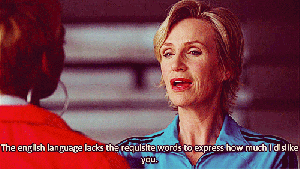 Discuss the power of words as depicted in the novel. Where do words get their power? Why do some words have the power to hurt us while others don’t? Darren uses language as a weapon: he calls Albie “dummy” and “retard” and also uses language to bully Betsy. Mr. Clifton tells Albie that he can control which words he lets hurt him.
“ ‘Don’t call her that,’ I said to the skateboard shirt boy. Darren. ‘That’s mean.’ I didn’t know why it was mean, but sometimes you could tell that a person want’ being nice, even if you weren’t sure how” (32). Does it matter what words are used if they are used maliciously? How can you tell that something is mean even if you don’t understand what it is? Also discuss this event as the origin of Albie’s friendship with Betsy and rivalry with Darren.
“ ‘Would it bother you if this kid called you a three-toed yellow featherbed?’ … ‘No… Because I’m not a three-toed…” (218). Mr. Clifton indicates that it is not words themselves that hurt; rather, it is the fact that the words hit on insecurities. Being called ‘dummy’ hurts Albie because he believes that he is unintelligent. Discuss.
Discuss the power of words as depicted in the novel. Where do words get their power? Why do some words have the power to hurt us while others don’t? Darren uses language as a weapon: he calls Albie “dummy” and “retard” and also uses language to bully Betsy. Mr. Clifton tells Albie that he can control which words he lets hurt him.
“ ‘Don’t call her that,’ I said to the skateboard shirt boy. Darren. ‘That’s mean.’ I didn’t know why it was mean, but sometimes you could tell that a person want’ being nice, even if you weren’t sure how” (32). Does it matter what words are used if they are used maliciously? How can you tell that something is mean even if you don’t understand what it is? Also discuss this event as the origin of Albie’s friendship with Betsy and rivalry with Darren.
“ ‘Would it bother you if this kid called you a three-toed yellow featherbed?’ … ‘No… Because I’m not a three-toed…” (218). Mr. Clifton indicates that it is not words themselves that hurt; rather, it is the fact that the words hit on insecurities. Being called ‘dummy’ hurts Albie because he believes that he is unintelligent. Discuss.
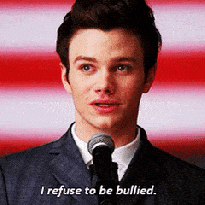 “Darren still called me ‘dummy’ sometimes, even though he was my friend now, only he said it while he was laughing and not laughing at I didn’t think, so I figured maybe it was okay. Even if I didn’t actually like it a whole lot” (166). How does the intent behind language affect its meaning? Why does Darren’s “friendship” make his mean words marginally less mean? What if the friendship were true? Do you know anyone who uses traditionally mean words as endearments or traditionally kind words as insults? Also consider the way something is received. Albie dislikes being called ‘dummy’ even when the delivery is not overtly mocking. Discuss the way that delivery and reception must be synced in order for proper communication to occur.
Darren is eventually disciplined for using the word ‘retard,’ and the word is officially banned from the school (179). Albie narrates, “Darren Ackleman doesn’t call me ‘retard’ anymore. But I think maybe it’s not words that need to be outlawed” (180). What, if not words, need to be outlawed? Why are certain words banned if doing so does not eliminate the root problem? What else could Albie’s teachers have done to keep Albie from being bullied? Was banning the word ‘retard’ an appropriate step?
What do you think about Calista? Is she a good babysitter for Albie? What does she do for him that the other characters do not? She seems to understand him—or, at least, empathize with him—more than anyone else can or does. Why might that be? Objectively, do you think that she is a good influence on Albie? Consider both the ways that she helps him (getting him to read more, listening to him, teaching him to draw, etc.) and the questionable ways she goes about them (allowing him to skip school without parental knowledge/permission, encouraging him to lie on his reading logs, etc.). As a reader, which are more important considerations? What about as a parent?
Discuss Calista’s mostly off-screen relationship with her boyfriend Gus. What do we know about Gus? Why is Calista so unhappy when they break up even though Gus was clearly bad for her?
When Calista and Albie discuss the relationship between loving something and being good at it, she suggests that “maybe the love part comes first” (106). Do you agree with this? Are there things that you enjoy doing purely because you are good at them? Are there things that you have grown to excel at because you liked them enough to put in the hours? As a general rule, which would you say comes first? Also consider Albie’s father’s assertion that “ ‘the hard thing for you, Albie… is not going to be getting what you want in life, but figuring out what that is. Once you know what you want—really, truly—I know you’ll get it” (266).
Discuss the evolution of Donut Man, Albie’s superhero. When Calista asks what Donut Man’s superpower is, Albie replies that he doesn’t have one and he doesn’t need one. “ ‘He doesn’t have a superpower. He just really likes donuts… Some people aren’t good at anything. Some people just really like donuts’” (138-139). How does this reflect Albie’s feeling of self-worth? Is Donut Man more a case of Albie believing that he isn’t good at anything, or in an optimistic hope that it is possible to be a superhero despite a lack of superpowers? What do you think? Towards the end of the novel, Calista leaves a cartoon for Albie, telling him that his superpower is kindness (282-284). Discuss. Keeping in mind Donut Man as a reflection of Albie’s self-worth, discuss Albie’s artistic improvement over the course of the novel and the way that he adds to and improves Donut Man.
Why do you think Graff included the subplot about Erlan and his family’s reality TV show? How does Erlan’s strange situation contribute to Albie’s story? Consider: “I couldn’t help thinking that it would be
“Darren still called me ‘dummy’ sometimes, even though he was my friend now, only he said it while he was laughing and not laughing at I didn’t think, so I figured maybe it was okay. Even if I didn’t actually like it a whole lot” (166). How does the intent behind language affect its meaning? Why does Darren’s “friendship” make his mean words marginally less mean? What if the friendship were true? Do you know anyone who uses traditionally mean words as endearments or traditionally kind words as insults? Also consider the way something is received. Albie dislikes being called ‘dummy’ even when the delivery is not overtly mocking. Discuss the way that delivery and reception must be synced in order for proper communication to occur.
Darren is eventually disciplined for using the word ‘retard,’ and the word is officially banned from the school (179). Albie narrates, “Darren Ackleman doesn’t call me ‘retard’ anymore. But I think maybe it’s not words that need to be outlawed” (180). What, if not words, need to be outlawed? Why are certain words banned if doing so does not eliminate the root problem? What else could Albie’s teachers have done to keep Albie from being bullied? Was banning the word ‘retard’ an appropriate step?
What do you think about Calista? Is she a good babysitter for Albie? What does she do for him that the other characters do not? She seems to understand him—or, at least, empathize with him—more than anyone else can or does. Why might that be? Objectively, do you think that she is a good influence on Albie? Consider both the ways that she helps him (getting him to read more, listening to him, teaching him to draw, etc.) and the questionable ways she goes about them (allowing him to skip school without parental knowledge/permission, encouraging him to lie on his reading logs, etc.). As a reader, which are more important considerations? What about as a parent?
Discuss Calista’s mostly off-screen relationship with her boyfriend Gus. What do we know about Gus? Why is Calista so unhappy when they break up even though Gus was clearly bad for her?
When Calista and Albie discuss the relationship between loving something and being good at it, she suggests that “maybe the love part comes first” (106). Do you agree with this? Are there things that you enjoy doing purely because you are good at them? Are there things that you have grown to excel at because you liked them enough to put in the hours? As a general rule, which would you say comes first? Also consider Albie’s father’s assertion that “ ‘the hard thing for you, Albie… is not going to be getting what you want in life, but figuring out what that is. Once you know what you want—really, truly—I know you’ll get it” (266).
Discuss the evolution of Donut Man, Albie’s superhero. When Calista asks what Donut Man’s superpower is, Albie replies that he doesn’t have one and he doesn’t need one. “ ‘He doesn’t have a superpower. He just really likes donuts… Some people aren’t good at anything. Some people just really like donuts’” (138-139). How does this reflect Albie’s feeling of self-worth? Is Donut Man more a case of Albie believing that he isn’t good at anything, or in an optimistic hope that it is possible to be a superhero despite a lack of superpowers? What do you think? Towards the end of the novel, Calista leaves a cartoon for Albie, telling him that his superpower is kindness (282-284). Discuss. Keeping in mind Donut Man as a reflection of Albie’s self-worth, discuss Albie’s artistic improvement over the course of the novel and the way that he adds to and improves Donut Man.
Why do you think Graff included the subplot about Erlan and his family’s reality TV show? How does Erlan’s strange situation contribute to Albie’s story? Consider: “I couldn’t help thinking that it would be awfully nice to have people think you were interesting enough to put on TV” (16). Consider: “It was hard to feel bad for Erlan when I was feeling so bad for me. He’d still have his brothers, and his sisters too, plus all our other friends. And once his show was on TV, everyone in the world practically would know who he was and love him and think he was cool” (17).
Albie is half Korean, half Swiss. He does not speak Korean or get along particularly well with his Korean grandfather, and most people cannot distinguish between someone who is Korean and someone—like Erlan—who is Kazakh because it is seen as generic Asian-ness. Is Albie being mixed-race another almost? What affect, if any, does it have on the novel as a whole?
awfully nice to have people think you were interesting enough to put on TV” (16). Consider: “It was hard to feel bad for Erlan when I was feeling so bad for me. He’d still have his brothers, and his sisters too, plus all our other friends. And once his show was on TV, everyone in the world practically would know who he was and love him and think he was cool” (17).
Albie is half Korean, half Swiss. He does not speak Korean or get along particularly well with his Korean grandfather, and most people cannot distinguish between someone who is Korean and someone—like Erlan—who is Kazakh because it is seen as generic Asian-ness. Is Albie being mixed-race another almost? What affect, if any, does it have on the novel as a whole?
 Clifton proudly displays an elementary school report card with an F for math. “ ‘You can’t get where you’re going without being where you’ve been,’” he tells Albie (84). Do you understand Mr. Clifton’s attitude? How has failure shaped Mr. Clifton? How has failure shaped Albie? How can failure be viewed as success? Is it possible that in some cases, it might be better in the long run to fail (or almost succeed)? Discuss.
Clifton proudly displays an elementary school report card with an F for math. “ ‘You can’t get where you’re going without being where you’ve been,’” he tells Albie (84). Do you understand Mr. Clifton’s attitude? How has failure shaped Mr. Clifton? How has failure shaped Albie? How can failure be viewed as success? Is it possible that in some cases, it might be better in the long run to fail (or almost succeed)? Discuss.
gif sources here, here, and here
Advertisements
Share this:
Like this:Like Loading...
Related
 Discussion Starters for Absolutely Almost by Lisa Graff
Discussion Starters for Absolutely Almost by Lisa Graff Discuss Albie’s social situation at his new school, paying particular attention to his relationships with Betsy and Darren. Why do you think that Albie and Betsy band together? What do they have in common? Why does Darren antagonize the two of them? What is it about Darren that is so appealing that, despite his cruelty, Albie drops Betsy in order to join Darren and his friends in the “cool” group? Why is it that people like Darren find themselves on the top of the social hierarchy? What makes someone cool, and why is it important (or is it)? Why are people like Albie and Betsy left at the bottom? Consider Grandpa Park’s assessment that “Not everybody can be the rock at the top of the rock pile” (1). In what ways is Grandpa Park’s rock metaphor accurate to Albie’s situation? In what ways is it not? Do you agree that the people at the top need the support of those beneath them? If so, why? If not, why not?
Discuss Albie’s social situation at his new school, paying particular attention to his relationships with Betsy and Darren. Why do you think that Albie and Betsy band together? What do they have in common? Why does Darren antagonize the two of them? What is it about Darren that is so appealing that, despite his cruelty, Albie drops Betsy in order to join Darren and his friends in the “cool” group? Why is it that people like Darren find themselves on the top of the social hierarchy? What makes someone cool, and why is it important (or is it)? Why are people like Albie and Betsy left at the bottom? Consider Grandpa Park’s assessment that “Not everybody can be the rock at the top of the rock pile” (1). In what ways is Grandpa Park’s rock metaphor accurate to Albie’s situation? In what ways is it not? Do you agree that the people at the top need the support of those beneath them? If so, why? If not, why not? Discuss the power of words as depicted in the novel. Where do words get their power? Why do some words have the power to hurt us while others don’t? Darren uses language as a weapon: he calls Albie “dummy” and “retard” and also uses language to bully Betsy. Mr. Clifton tells Albie that he can control which words he lets hurt him.
Discuss the power of words as depicted in the novel. Where do words get their power? Why do some words have the power to hurt us while others don’t? Darren uses language as a weapon: he calls Albie “dummy” and “retard” and also uses language to bully Betsy. Mr. Clifton tells Albie that he can control which words he lets hurt him.
 “Darren still called me ‘dummy’ sometimes, even though he was my friend now, only he said it while he was laughing and not laughing at I didn’t think, so I figured maybe it was okay. Even if I didn’t actually like it a whole lot” (166). How does the intent behind language affect its meaning? Why does Darren’s “friendship” make his mean words marginally less mean? What if the friendship were true? Do you know anyone who uses traditionally mean words as endearments or traditionally kind words as insults? Also consider the way something is received. Albie dislikes being called ‘dummy’ even when the delivery is not overtly mocking. Discuss the way that delivery and reception must be synced in order for proper communication to occur.
“Darren still called me ‘dummy’ sometimes, even though he was my friend now, only he said it while he was laughing and not laughing at I didn’t think, so I figured maybe it was okay. Even if I didn’t actually like it a whole lot” (166). How does the intent behind language affect its meaning? Why does Darren’s “friendship” make his mean words marginally less mean? What if the friendship were true? Do you know anyone who uses traditionally mean words as endearments or traditionally kind words as insults? Also consider the way something is received. Albie dislikes being called ‘dummy’ even when the delivery is not overtly mocking. Discuss the way that delivery and reception must be synced in order for proper communication to occur. awfully nice to have people think you were interesting enough to put on TV” (16). Consider: “It was hard to feel bad for Erlan when I was feeling so bad for me. He’d still have his brothers, and his sisters too, plus all our other friends. And once his show was on TV, everyone in the world practically would know who he was and love him and think he was cool” (17).
awfully nice to have people think you were interesting enough to put on TV” (16). Consider: “It was hard to feel bad for Erlan when I was feeling so bad for me. He’d still have his brothers, and his sisters too, plus all our other friends. And once his show was on TV, everyone in the world practically would know who he was and love him and think he was cool” (17). Clifton proudly displays an elementary school report card with an F for math. “ ‘You can’t get where you’re going without being where you’ve been,’” he tells Albie (84). Do you understand Mr. Clifton’s attitude? How has failure shaped Mr. Clifton? How has failure shaped Albie? How can failure be viewed as success? Is it possible that in some cases, it might be better in the long run to fail (or almost succeed)? Discuss.
Clifton proudly displays an elementary school report card with an F for math. “ ‘You can’t get where you’re going without being where you’ve been,’” he tells Albie (84). Do you understand Mr. Clifton’s attitude? How has failure shaped Mr. Clifton? How has failure shaped Albie? How can failure be viewed as success? Is it possible that in some cases, it might be better in the long run to fail (or almost succeed)? Discuss.